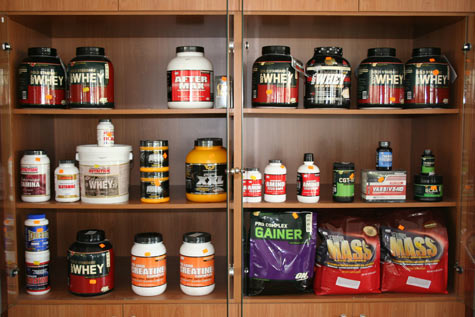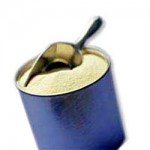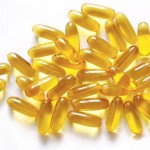Often times when attempting to achieve their particular fitness goals, people turn to “muscle supplements” to help them in their progress. Now, when defining muscle supplements, I’m really focusing on any supplement in the fitness industry that claims to help you achieve a certain look. Whether that result comes from supplements that help you retain muscle as you’re trying to lose fat, or a supplement meant to help you put on muscle, we’ve coined them muscle supplements because they advertise helping you by aiding your muscles in some way to achieve a specific look. These muscle supplements are rampant, and it is often a struggle to differentiate one company from another because they’re all generally split between the two objectives outlined above. The problem for a fitness-oriented individual isn’t, however, the fact they have so many options to choose from (in most cases, that’s a good thing, right?). The problem is actually buying a muscle supplement that can legitimately help an individual with what they’re aiming to buy the supplement for in the first place.
The unfortunate consequence of the huge media and fitness industries and their propaganda campaigns in all types of fitness magazines, shows, and any other popular source imaginable; is that they’ve effectively gotten the general public to believe that these muscle supplements work, and they work very well. So when an individual goes into a local Vitamin Shoppe or GNC, often times they’re not in there to find a product that works, they’re in there to purchase the product that makes the most creative claims that it works. This is a product (no pun) of these effective campaigns by these companies within the fitness industry to get you to buy into their pipe dreams, and they’ve done a great job. However, the fitness-oriented individual who understands how this process works will not be so easily duped, at least without first understanding some basic necessities when dealing with any types of muscle supplements.
1) Supplements are not created equal – just because it is sitting on the shelf, or you’ve seen it advertised on multiple magazines doesn’t mean that it works. The company simply has money to push the product, and you should be skeptical until you see some real research behind the effectiveness of the muscle supplement that hasn’t been skewed to help push the product.
2) Supplements don’t work magic – even if a muscle supplement does help in one form or another and this has been proven, understand the role that these supplements play. They aren’t there to substitute your diet, or to do the work for you. They are simply supplements, to supplement your already rigorous workouts and proper diet. If you want to reach results, you can reach all the results you need to reach on your own. These muscle supplements are there only to help fill in small gaps or give you that extra you need to reach your goals.
With all this talk of muscle supplements that work and don’t work, it is only fair we point out the supplements that have actually been proven to work.
Protein – Creatine – Multivitamin – Fish Oil.
Now, I’m not saying no other supplements work. They certainly may or may not, but if we’re referring to supplements that unquestionably play a role in helping your body reach your fitness goals, and have been proven extensively to work, those are the three. Everything else is up in the air, with some having more evidence behind them than others. Furthermore, out of these three, only enough Creatine can’t be supplied from eating foods alone (at least, an efficient amount that you can get from a supplement). Since Creatine supplementation isn’t necessary, you could argue there’s no need for any supplement if you step your eating game up. However, no need to go that far as it’s pretty tough to get all of your vitamins in without a supplement. Fish Oil is not a muscle supplement but is included in this list because Omega 3s are so important you should always have them on hand for overall health. Again, these muscle supplements are great to fix any gaps in your daily routine and diet, not as standalone powerhouses like many expect them to be. There’s a little more to expand on, however.
a) Protein Powder – this has been a staple muscle supplement for as far back as we can care to look back to. However, it is not the fact that protein powder has some special ability in it that allows it to be an effective supplement. It is simply protein, in powder form, that you can ingest for a quick dose of protein in order to help you reach the amount you should be taking in per day. We discuss this concept in How Much Protein Per Day.
Some people think that by working out and taking in a protein shake post-workout they will wind up putting on muscle. The process doesn’t work that way! Protein is a basic building block of life, essential to the building and repair of muscle. Protein powder is simply a powdered version that one can use to help you reach a higher protein amount for the day (necessary for eventual repair and growth of the muscle you punished in gym). For example, if you haven’t had too much protein today because your meal choices weren’t high in protein-rich foods like meats and fish, you can use a protein shake as a supplement to help you reach your protein goals. It will give you that extra protein necessary. The protein powder is not a muscle supplement that will do anything on its own!
In order to actually put on muscle mass, a protein powder is irrelevant if you do not eat above your caloric maintenance. There is a certain amount of calories per day you need to take in so that your body grows, if that amount is not met, all the protein shakes in the world won’t help you put on muscle (well, unless you drank enough to give you enough calories to grow – certainly illogical and not recommended). Therefore, here’s the verdict:
If you use a protein powder, understand that it is merely a tool to help you reach an optimal protein count for the day, and without an overall diet that gives your body more energy than it expands (puts you above maintenance), it will not be very useful if you are using it with the goal of putting on muscle.
2) Fat Burners – whether fat burners actually play a role is debatable. Certain fat burners are muscle supplements in that they claim they help your body retain muscle as you try and lose weight (fat!). Again, this is all not exactly proven and set in stone. However, to illustrate how these supplements can’t be thought of as magic pills they are a great example.
When you buy a fat burner, it does not contain pills that will magically slim you down by following the recommended doses (although you’d be surprised, the writing on the bottle claims otherwise, no?). With that said, we return to the principle of calories per day outlined earlier. If you’re eating above your maintenance calories for the day (the amount required to keep you at your current weight), no matter how many of these fat burner pills you take it won’t make a difference. The fat burner isn’t a stand alone actor, it is simply a supplement that you should be using along with your proper diet and workouts. As a result, you must be eating below your maintenance calories and using it to help out with minor things such as appetite suppression (to help you eat less calories overall for the day) or metabolism increase (to help you burn a bit more calories for the day). Under those circumstances, it will act as a supplement to your already proper diet.
Someone who is going to take a fat burner but the diet is all over the place, unknowingly eating above maintenance but hoping to lose some fat, will be very disappointed, even though the bottle and the reviews clearly state the product works. That’s where this misunderstanding occurs between the consumer, and the company producing the supplement. It’s not easy to get your diet in check, it’s not a simple process. Many times we are led to believe that a quick fix is there and it will bring instant results, unfortunately, this is not the case. Make sure you have everything else in check (diet, workout routine) before you purchase a muscle supplement to help you achieve your goals. They may claim otherwise, but they are only (at best) supplements. Furthermore, make sure you don’t believe outrageous claims or any product that makes it seem it does work you know you should be doing. It will almost certainly be a waste of money. There’s those few muscle supplements that definitely do work, the rest do not have such concrete evidence. You can go ahead and try them, but even if they do wind up working for you, remember…they’re only a supplement, use them as such. Good luck!








2 Comments »